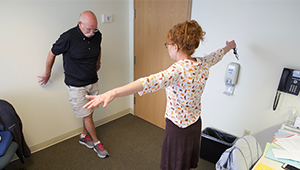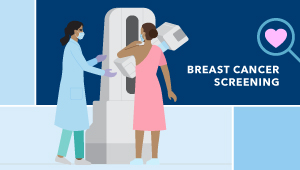Pamela A. Shaw, PhD, MS
Biography
Pamela Shaw, PhD, MS, is a biostatistician with expertise in clinical trials, design and analysis of complex epidemiologic studies, measurement error, and survival analysis. Dr. Shaw’s current statistical research includes a focus on methodology to correct for covariate and outcome measurement error, with application to studies reliant on electronic health records and large observational cohort studies. She is currently applying these methods to study the relationship between maternal weight trajectories during pregnancy and early childhood outcomes, as well as to identify risk factors for poor outcomes in several cohorts of patients with HIV/AIDS.
Dr. Shaw is also involved in studies of aging, behavioral intervention studies, and the use of biomarkers to calibrate self-reported nutritional intake and physical activity. She is co-investigator in a clinical trial that will assess whether an anti-inflammatory diet can improve cognition in a middle-aged (40- to 65-year-old) multi-ethnic urban population relative to a usual diet. She is an investigator for the Adult Changes in Thought (ACT) study, a joint project between Kaiser Permanente Washington Health Research Institute and the University of Washington that focuses on risk factors for dementia, including Alzheimer's disease, and declines in memory and thinking. For this study, she is collaborating with other ACT investigators to understand the best way to quantify patterns of physical activity in the 24-hour day and its association with health outcomes.
Before joining KPWHRI as a senior investigator, Dr. Shaw was an associate professor of biostatistics in the University of Pennsylvania Perelman School of Medicine. At UPenn she taught in the biostatistics graduate program and was the lead statistician for several early phase clinical trials, including studies of CART19, a novel CAR T cell immune therapy for the treatment of acute lymphocytic leukemia and other blood cancers, as well as clinical trials that evaluated the efficacy of behavioral economic interventions to increase healthy behaviors. She co-authored the textbook Essentials of Probability Theory for Statisticians (CRC Press 2016).
Prior to UPenn, she was a mathematical statistician in the Biostatistics Research Branch at the National Institute of Allergy and Infectious Diseases, where she was lead statistician for several clinical and basic science studies of human infectious and immunologic disease.
Dr. Shaw is an adjunct associate professor in the Department of Biostatistics, Epidemiology and Informatics at the University of Pennsylvania and an affiliate professor in the Department of Biology and Wildlife at the University of Alaska Fairbanks. She is associate editor for Statistics in Medicine. She serves as a member for several clinical trial data safety monitoring boards and as a member of the Bone, Reproductive and Urologic Drugs Advisory Committee for the U.S. Food and Drug Administration. She is a member of the International Biometric Society and fellow of the American Statistical Association.
She completed a Bachelor of Arts in mathematics and French at Grinnell College, and a Master of Science in mathematics and a doctorate in biostatistics at the University of Washington.
Areas of research focus
Recent Publications
Amorim G, Tao R, Lotspeich S, Shaw PA, Lumley T, Patel RC, Shepherd BE. Three-phase generalized raking and multiple imputation estimators to address error-prone data. Stat Med. 2024;43(2):379-394. doi: 10.1002/sim.9967. Epub 2023 Nov 21. PubMed
Boe LA, Lumley T, Shaw PA. Practical considerations for sandwich variance estimation in two-stage regression settings. Am J Epidemiol. 2023 Nov 27:kwad234. doi: 10.1093/aje/kwad234. [Epub ahead of print]. PubMed
Sneed NM, Heerman WJ, Shaw PA, Han K, Chen T, Bian A, Pugh S, Duda S, Lumley T, Shepherd BE. Associations Between Gestational Weight Gain, Gestational Diabetes, and Childhood Obesity Incidence. Matern Child Health J. 2023 Nov 15. doi: 10.1007/s10995-023-03853-8 [Epub ahead of print] PubMed
Tong J, Duan R, Li R, Luo C, Moore JH, Zhu J, Foster GD, Volpp KG, Yancy WS Jr, Shaw PA, Chen Y. Quantifying and correcting bias due to outcome dependent self-reported weights in longitudinal study of weight loss interventions. Sci Rep. 2023;13(1):19078. doi: 10.1038/s41598-023-41853-4. PubMed
Duan R, Liang CJ, Shaw PA, Tang CY, Chen Y. Testing the missing at random assumption in generalized linear models in the presence of instrumental variables. Scand Stat Theory Appl. 2024;51(1):334-354. doi: 10.1111/sjos.12685. Epub 2023 Aug 7. PubMed
Healthy findings blog

HIV/AIDS research advances through Pamela Shaw's work
Shaw's project to reduce the impact of errors in data was just honored with an NIH MERIT award.
New funding

Grant of over $55M to boost Alzheimer’s, dementia study
Kaiser Permanente Washington will co-lead an expanded ACT Program to better understand the aging brain.
Research

Roundup of 3 recent studies on breast cancer screening
New research spotlights overdiagnosis, MRI before surgery, and a new way of predicting breast cancer risk



